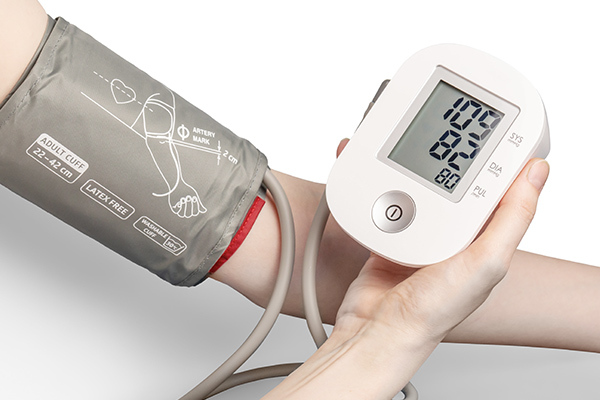
High blood pressure is a cause for concern regardless of age and it's certainly a red flag that needs attention if it occurs while resting. It will fluctuate throughout the day but should remain low when not exerting too much strain. Multiple factors can cause high blood pressure and smoking cigarettes is a clear indicator as proven by tons of medical studies. But does vaping also lead to increased blood pressure? If so, what is the contributing factor that leads to that danger regardless of what product you inhale? First of all, let’s look at the basic principles of blood pressure, medically known as hypertension, and how it manifests.
What is Increased Blood Pressure?
Hypertension occurs when the blood needs to work harder than usual to pump around the body to the arteries. They then narrow and lose the stretchy ability that allows blood to flow with ease. When arteries clog up and have limited movement, this is what eventually leads to a heart attack or stroke, should blood flow directed to the brain stop. The correlation between bad heart health and smoking habits creates multiple issues. Not just the clogging of arteries but also; reducing oxygen levels to the rest of the body and increasing the chances of blood clots. Considering the 7000 estimated dangerous toxins in cigarettes and the fact nicotine is the only ingredient also used in e-cigarettes, it’s important to understand whether vaping carries the same risk to our blood pressure.
Can E-Cigarettes Raise Blood Pressure?
As we know, e-cigarettes contain a mixture of ingredients, which are on packages of reputable brands that have nothing to hide. Typically each e-liquid contains sweeteners, VG and PG (sometimes a higher amount of one than the other or a 50/50 balance), nicotine and water. These ingredients together create the flavours, vapour and throat hit we’ve come to expect from vaping, yet none of the ingredients on their own provide 100% proof or cause increased blood pressure.
The question of whether this causes higher blood pressure is frequently asked but not extensively covered in medical studies to date. What we do know is nicotine on its own is relatively safe to inhale and causes only mild side effects. More risk exists when you continue to smoke because of the carcinogenic toxins including tar and combustible tobacco. The British Heart Foundation funded a 2019 study for Dundee university which stated that vaping may improve vascular health and blood pressure for those who previously smoked.
Smoking Vs Vaping - Which is More Likely to Increase the Chances of Hypertension?
We can only go off what we know from a mixture of medical evidence. From what’s understood, both smoking and vaping could potentially cause hypertension because of the introduction of nicotine. But this is low risk on its own as a chemical. But with smoking, you also have to factor in the other chemicals we have discussed previously.
What’s important to note is that although the number of e-cigarette users in the UK has risen to over four million in 2022, quickly increasing in popularity over the past decade, it’s still a fairly new trend and cessation tool to help quit smoking. In the past, it was predominantly products provided by the NHS such as Champix, nicotine gum and patches as a method to prevent smoking relapses. However, these often produce mixed results that don't sustain longer than short-term.
It's difficult to switch when the habit is completely different and you can't manage the nicotine levels. Many vapers plan to use the cessation tool in the manner it's intended for - to slowly reduce the nicotine levels to 0mg and vape until there is no dependency on inhaling any sort of nicotine product - saving money, and time and most importantly improving your health.

Therefore, with a mixture of vapers at different dependency levels of nicotine and the majority of vapers previously smokers (some heavy smokers of more than 20 a day) that may already have damage done to their arteries, as shown by various studies highlighted below, it will take additional years of research to understand the different patterns between vaping and smoking. The history of nicotine use with each individual is never one-size-fits-all.
For example, there are thousands of young vapers in the UK that didn’t previously smoke who are tempted to try an e-cigarette for various reasons. E-cigarettes tempt users because they come in all shapes, colours and flavours possible. So it may take more scientific studies on vapers of all ages who have never smoked to recognise any potential damage it could do to the arteries and how that relates to nicotine. Once we understand a few years down the line how it impacts the body without any previous intervention from cigarettes, scientific studies can prove once and for all whether previous use of cigarettes is the only contributing factor to high blood pressure among nicotine users.
As a society, we need to consider the other damages cigarettes can do and weigh up the disadvantages against trying vaping as an alternative, which is less of a risk (although not advised for non-smokers).
Conclusion
To summarise, until the vaping industry gets clear medical evidence from multiple studies that all arrive at the same verdict, it’s uncertain whether vaping leads to a risk of higher blood pressure. From what we can understand so far, nicotine is the only potential factor that could contribute to hypertension and narrowing arteries, but even that is not 100% certifiable. Only in years to come when it’s been scientifically cross-referenced between those who never smoked and now vape, compared to those who smoked and vaped or even people currently using both together will we know for sure.
